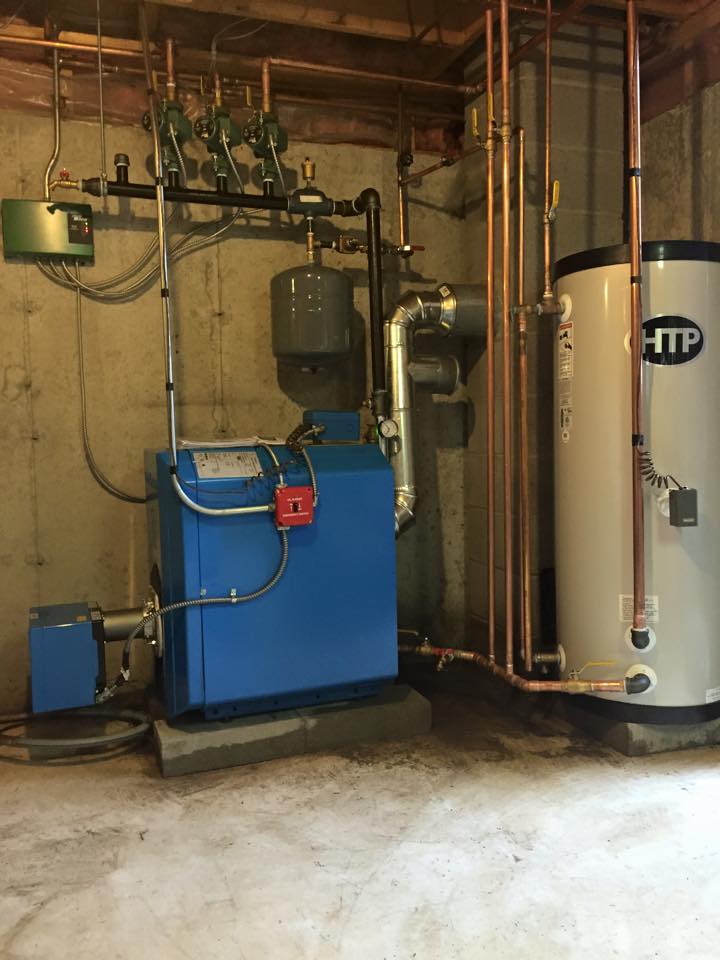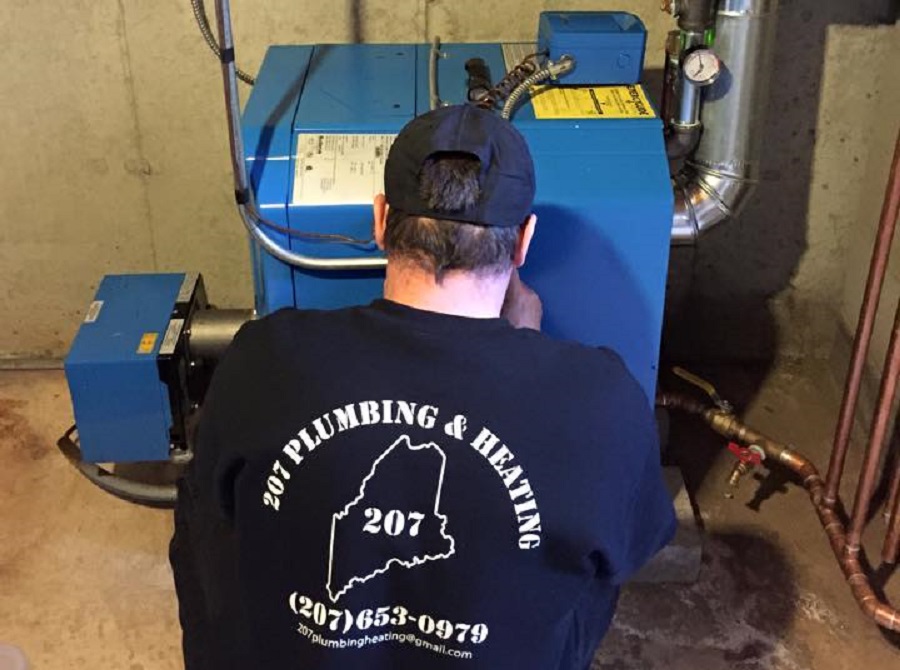
When you live in Maine, your heating system is very important for your safety as well as your comfort.
We get asked a lot, “What’s the best heating system to have in Maine?” While there isn’t a definitive answer to this question – it really depends on your individual circumstances and needs, we thought we’d give a rundown on the main types of heating systems available for your Maine home:
Forced hot water boilers heat water inside the unit and pump it throughout your home via a system of pipes and/or PEX tubing. The heated water is distributed by either circulator pumps or zone valves. Heat is dispersed in various areas of the house through standing or baseboard radiators, fin baseboards, or radiant heating tubing.
A forced hot air furnace works by blowing heated air through air ducts to deliver warmed air to rooms throughout the building via air registers. Furnaces can be powered by electricity, natural gas, or fuel oil.
Extremely energy efficient heat pump technology offers central heating and air conditioning from one unit. Heat pumps move heat from one place to another, moving heat out of your home in warm months, and pumping heat into your home when you want it warmer. Because heat pumps move heat rather than generating it, it uses much less energy than a conventional oil or gas furnace or boiler system. Requiring an outside unit called the condensing unit, the heat pump air handler unit inside the house delivers the heat or cooling. There is no destructive installation of ductwork or piping throughout the house.
Typically installed beneath flooring materials, radiant heating is a great heat option to pair with a forced hot water boiler. You can enjoy warm floors to walk on, and even heated racks to warm bath towels. Since radiant heating works from the ground up, heating is very even and consistent. Because the tubing is installed beneath the flooring and behind walls, it’s virtually invisible so it’s very aesthetically pleasing.
No matter what type of heating system you have, you should have it inspected and cleaned every year to make sure that it is running properly and efficiently. This will ensure it runs when you need heat, is safe for you and your family, and will extend the life of the system.

For more information on all heating options for your home, 207 Plumbing & Heating is here to help you! Please contact our experts today.